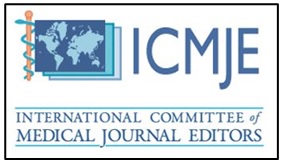Plagiarism detection and ethical considerations
The Revista Digital de Postgrado categorically rejects unethical practices of plagiarism or other practices of scientific or academic fraud. All the manuscripts sent to this journal are verified through anti-plagiarism software agreed with the Central University of Venezuela like Urkund.
If a situation of plagiarism, self-plagiarism or fraudulent or unethical action is detected, the manuscript will automatically be rejected and the fact will be communicated to all authors of the article.
The Postgraduate Digital Journal asks authors to submit unpublished manuscripts, with a clear and appropriate handling of data and references, free of unethical practices.
The Revista Digital de Postgrado maintains the guidelines of the Committee on Publication Ethics (COPE) as a reference: http://publicationethics.org/files/u2/New_Code.pdf
That is why there are the following commitments:
The Revista Digital de Postgrado is committed to complying with and respecting the rules of ethical conduct in all stages of the evaluation, edition and publication process. As well as ensuring the rights of the authors.
Authors must commit to submit unpublished articles free of fraudulent practices according to national and international guidelines. Confirm that they have obtained the bioethical endorsement of their investigation. Appropriately handle citations and bibliographical references.
The editors are committed to ensuring compliance with peer review. Make sure that the evaluation is carried out by experts in the area. Keep the rules clearly and explicitly to the authors and policies of the journal. As well as promoting at all times the ethical and responsible behavior of the editorial committee and the community of the magazine.
The reviewers, in turn, undertake to communicate any situation of plagiarism, conflict of interest or fraudulent practice they detect. Properly argue the reasons for rejection of the article and give recommendations for future contributions given the pedagogical nature of the journal. Carry out objective and ethical arbitrations in the time determined for that purpose.










